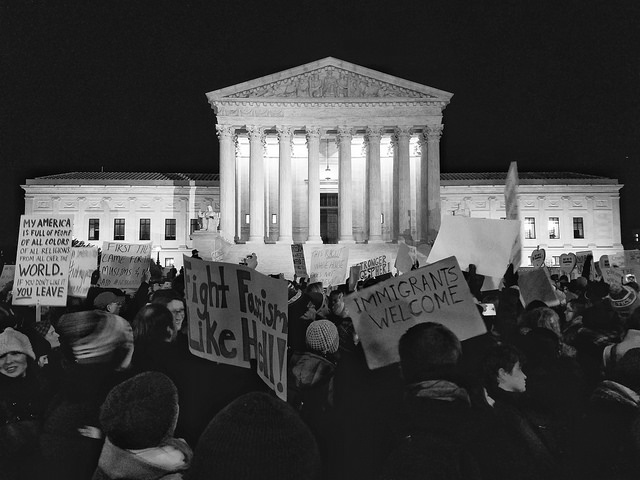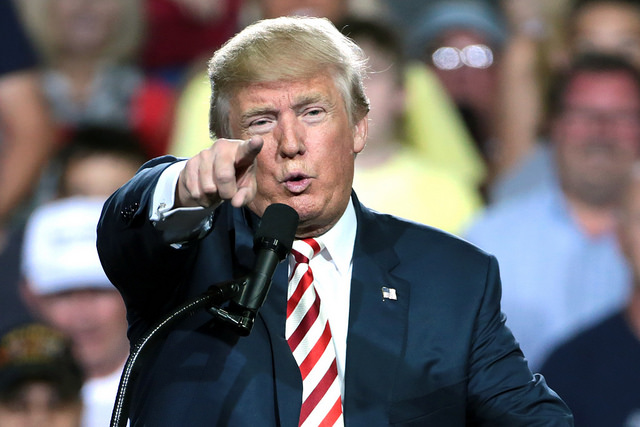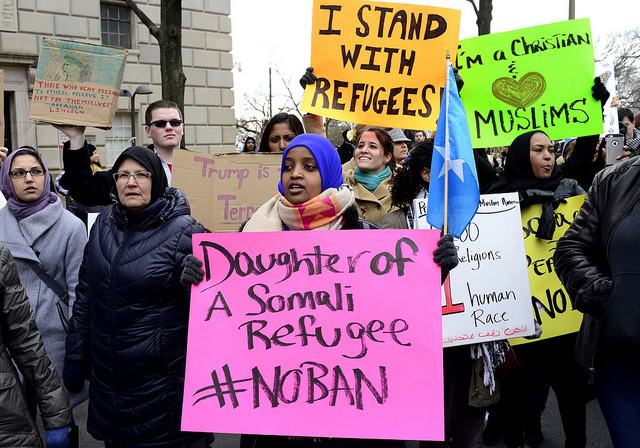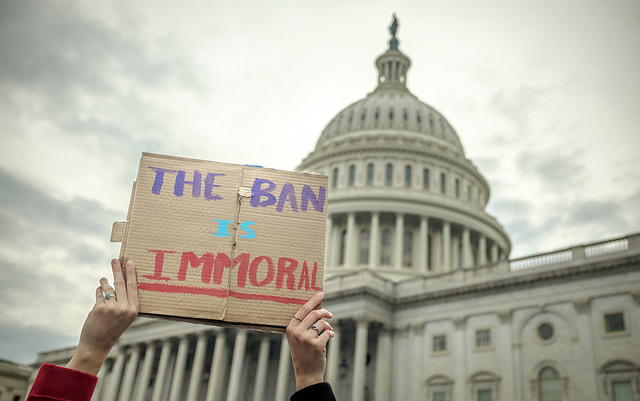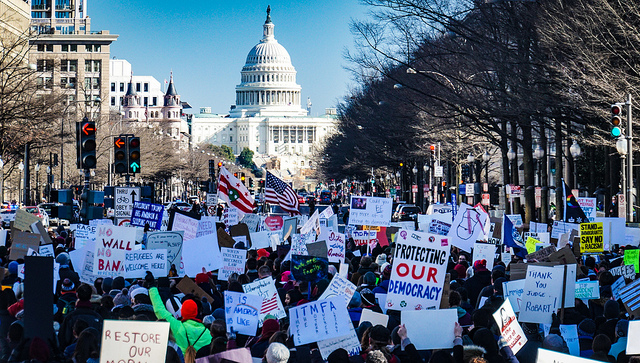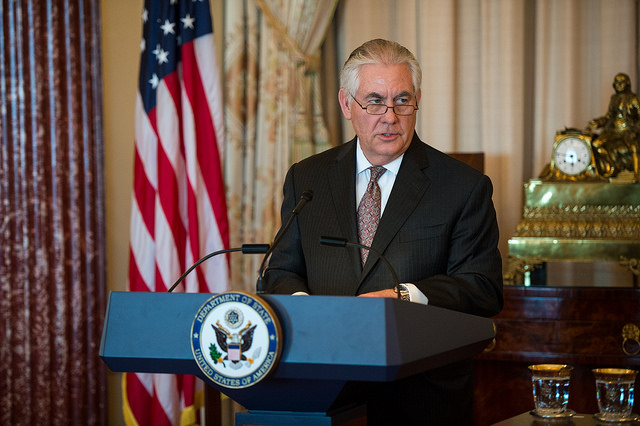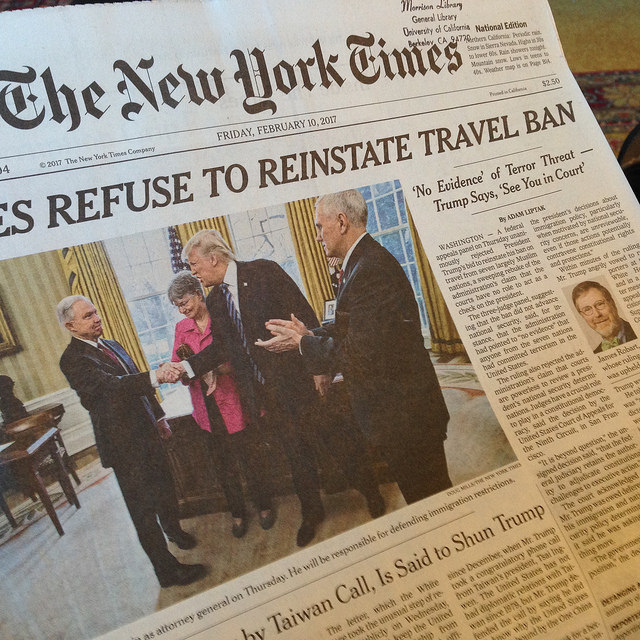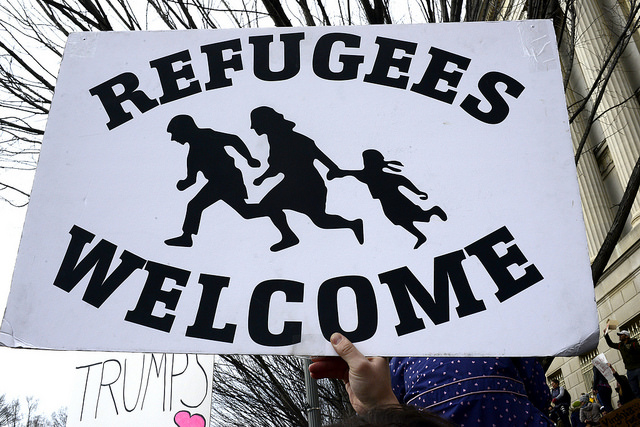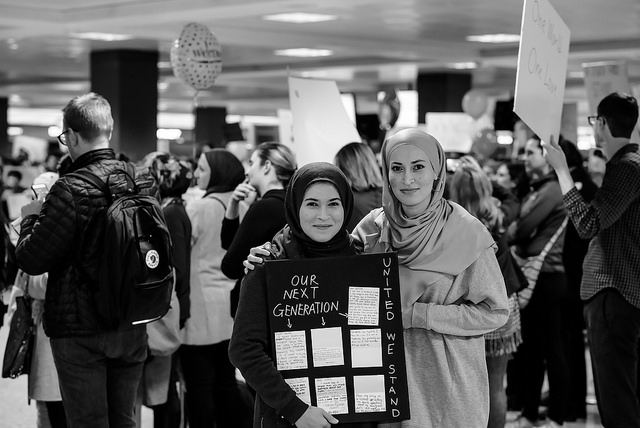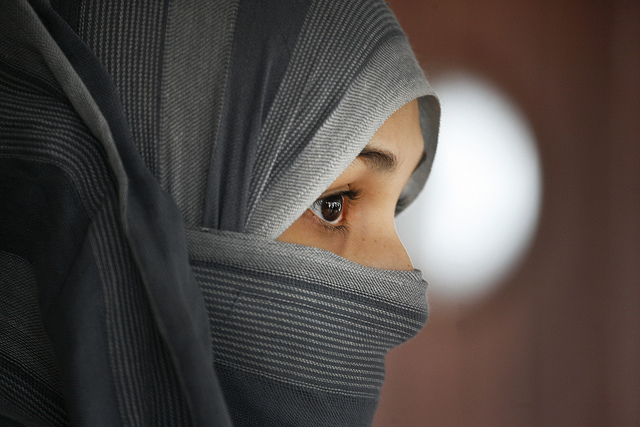The United States Court of Appeals for the Ninth Circuit has dealt yet another blow to President Donald Trump’s embattled executive order entitled “Protecting the Nation From Foreign Terrorist Entry Into the United States,” an order which temporarily prevented the admission of foreign nationals from six predominantly Muslim countries (Syria, Sudan, Somalia, Iran, Libya, and Yemen) and the admission of all refugees. As previously reported, the case reached the Ninth Circuit Court of Appeals, where a three-judge panel heard arguments against the President’s travel ban, brought by the state of Hawaii as well as other individual Plaintiffs.
Together, Judge Hawkins, Gould, and Paez, grilled the U.S. Solicitor General, Jeffrey Wall, representing the U.S. government, and attorney Neal Katyal, representing the state of Hawaii, concerning the constitutionality of the President’s executive order. Like the Fourth Circuit Court of Appeals, the Ninth Circuit Court once against decided against the President’s executive order, albeit for different reasons. The Ninth Circuit Court’s ruling against the travel ban is the latest in a string of court rulings rejecting the President’s executive order on statutory grounds.
In their 86-page opinion, the Ninth Circuit Court of Appeals rejected the executive order on statutory grounds, stating that the President had exceeded his executive power and made an inadequate judgment call with the issuance of his executive order. “The Immigration and Nationality Act (INA) gives the President broad powers to control the entry of aliens, and to take actions to protect the American public. But immigration, even for the President, is not a one-person show,” stated the Court, referring to the nation’s system of checks and balances. The Court added “we conclude that the President, in issuing the Executive Order, exceeded the scope of the authority delegated to him by Congress.” The Court further stated that the President’s executive order is at odds with various provisions of the Immigration and Nationality Act established by Congress, including a provision that prohibits nationality-based discrimination and a provision that requires the President to follow specific protocol when setting the annual cap on admission for refugees. The lower’s courts injunction on the travel ban will remain in place until a decision is issued by the U.S. Supreme Court.
 Visa Lawyer Blog
Visa Lawyer Blog


